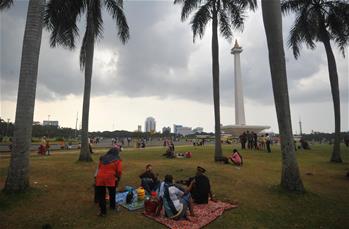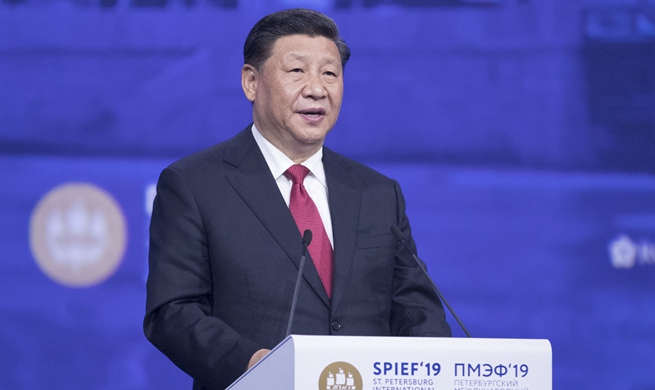BUCHAREST, June 8 (Xinhua) -- Moldovan parties took the outside world by a surprise and agreed to form a coalition government on Saturday, according to news reaching here from Chisinau, capital of Moldova.
That came after more than three months of a political deadlock following the Moldovan parliamentary election on Feb. 24.
The Socialists, who favor closer ties to Russia, won the election, while the ruling Democratic Party came the second and the opposition bloc ACUM finished the third. The elections produced a hung parliament, with main parties unable to form a governing majority in the past three months.
The new coalition government is led by Prime Minister Maia Sandu, a former education minister and World Bank adviser. Sandu is also the leader of the pro-European Union ACUM alliance.
The new 11-member cabinet was sworn in before the Parliament, though Moldova's Constitutional Court had declared earlier that all the decisions taken by the parliament are illegal.
"It will be a difficult mission, but we will be able to make a difference," Sandu said after the swearing-in ceremony. "Let us be calm, ensure this peaceful transition of power and start working for the good of this society."
President Igor Dodon signed the decree to name Sandu as Prime Minister earlier on the day, stressing that he signed the decree in accordance with the provisions of the Constitution following consultations held with the parliamentary groups.
The composition of the new coalition government was endorsed by all 61 MPs in the 101-seat parliament from the Socialist Party and the ACUM alliance, made up of the Action and Solidarity Party and the Dignity and Truth Platform Party.
"We start a new page in the history of the Republic of Moldova," Sandu said in her speech, proposing as her cabinet's three priorities -- the liberation of country from captivity, getting the country out of internal captivity and international isolation, as well as creating conditions for ensuring the people's well-being.
Earlier, the deputies of the Socialists and ACUM also elected Socialists' leader Zinaida Greceanii as President of Parliament.
The Moldovan Constitutional Court ruled that the election of Zinaida Greceanii as the parliament's speaker was unconstitutional, just as the other decisions made by the national legislature starting from June 8.
According to the Constitutional Court, the day for the dissolution of the parliament was June 7, 90 days after the establishment of the new parliament and any decision taken after this date by the legislative is null.
In response, the deputies of the Socialists and ACUM adopted a parliament declaration on the seized state, proclaiming that the majority of state structures captured, among which the Constitutional Court, stressing that the decisions of these departments are considered by the parliament to be illegal.













